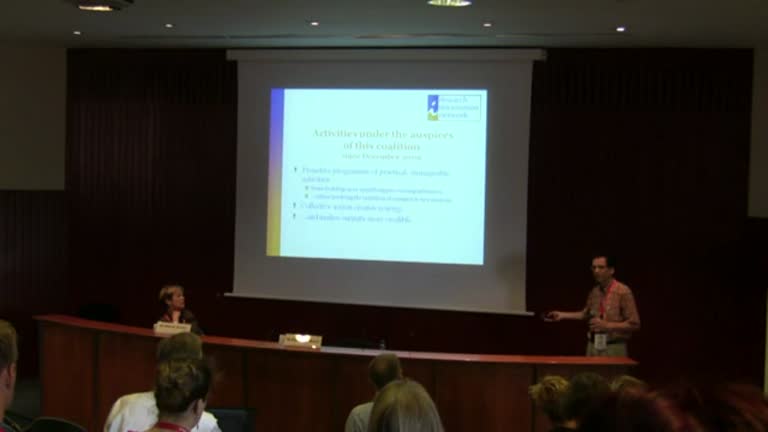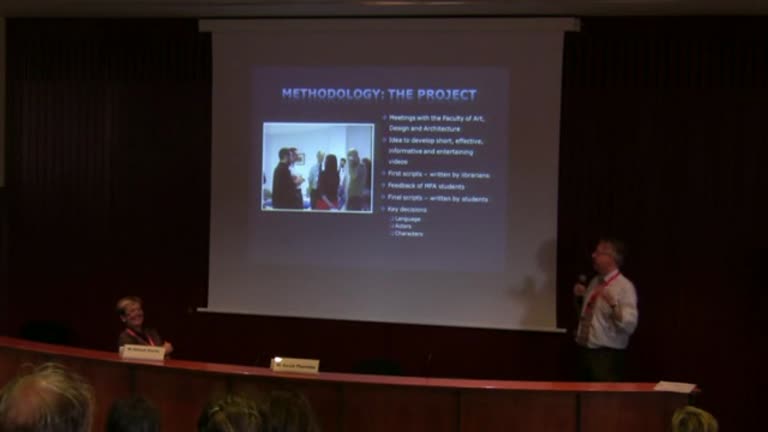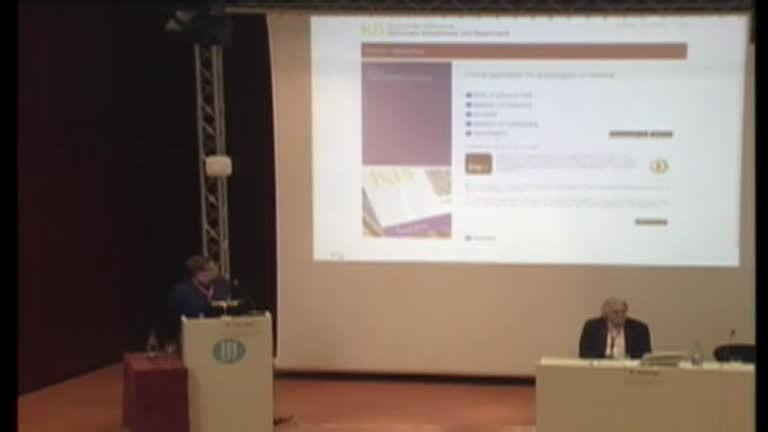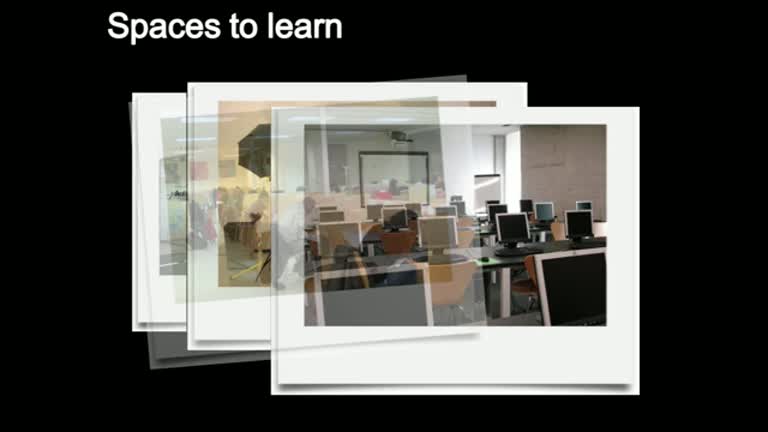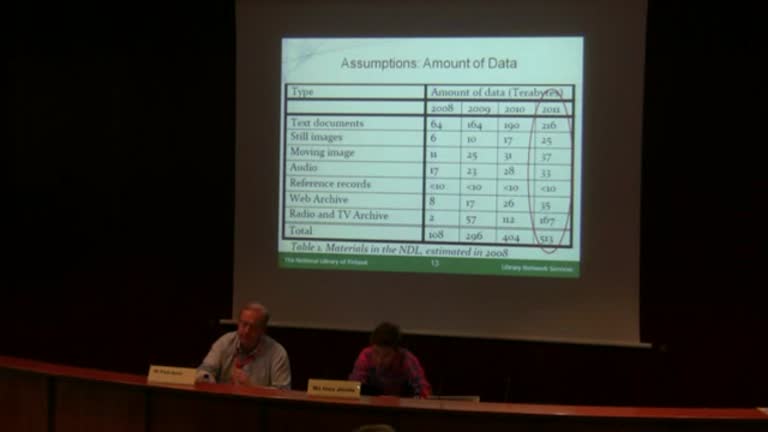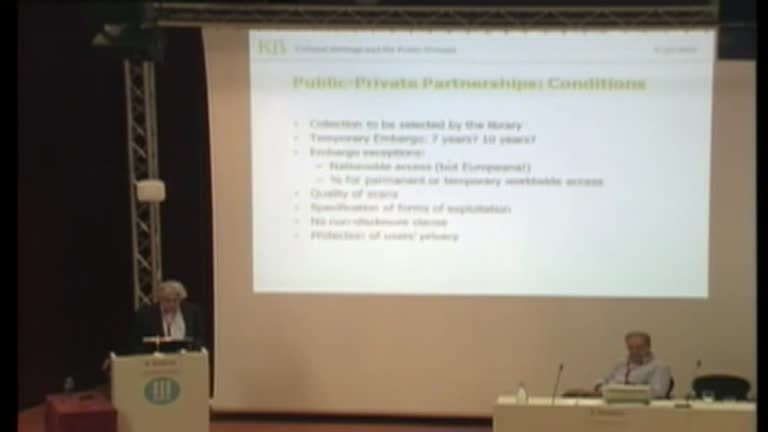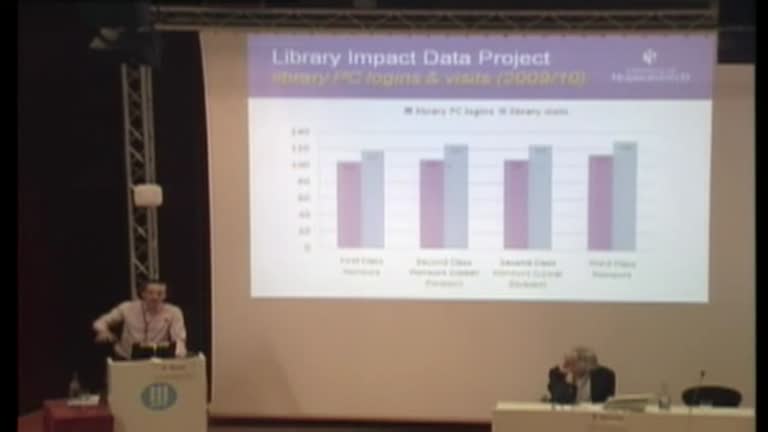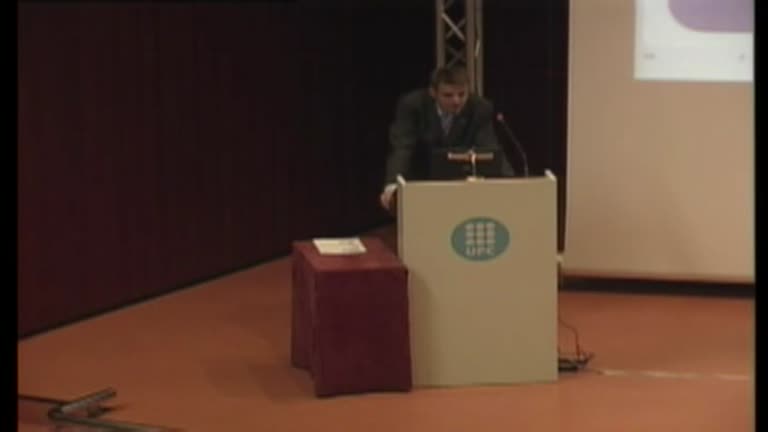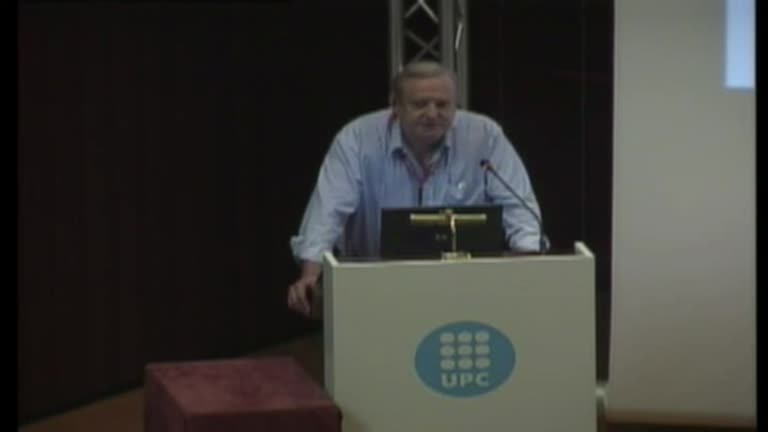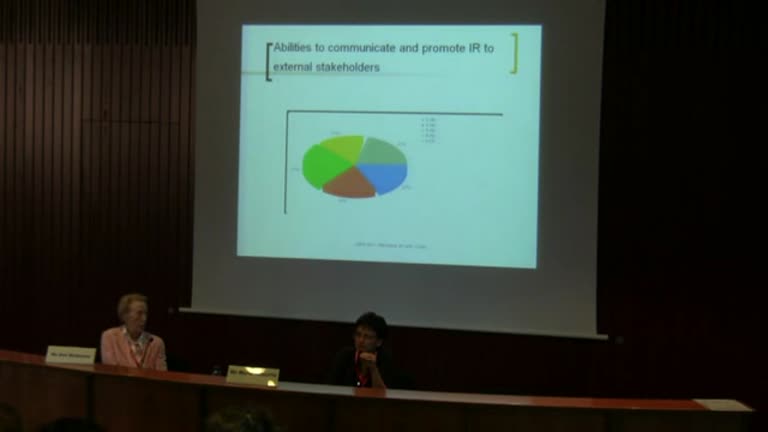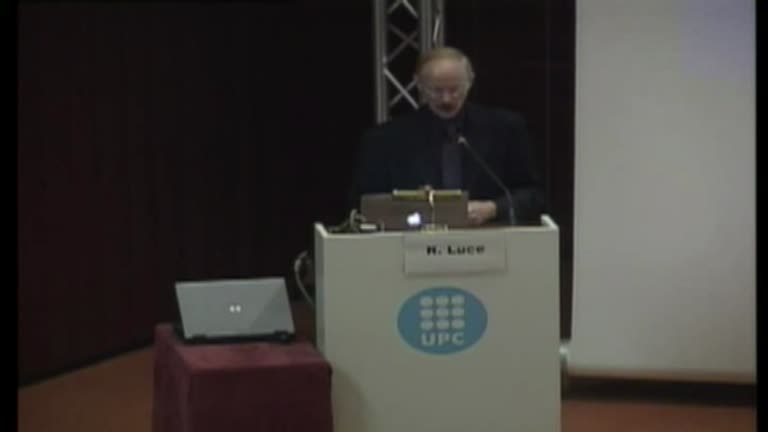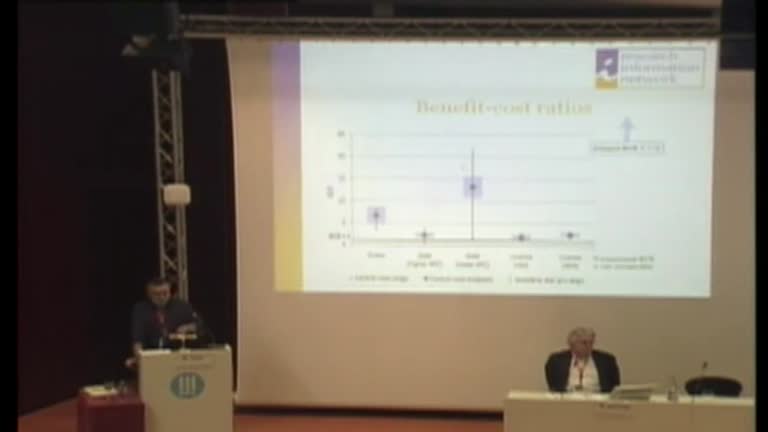Sèrie: LIBER Annual Conference 2011
30 de juny 2011
A partnership approach to promoting information literacy for higher education researchers
Accés obert
30 de juny 2011
The promotion and development of information literacy for researchers has tended in the UK to be the preserve of university librarians. Although much good work takes place in practice to help develop appropriate skills and understanding, this is often haphazard. There is thus a strong case for greater join-up involving input from and strategic coordination between interested parties beyond the library sector.
This is the rationale for the creation of a coalition of partners, including information professionals, graduate school personnel, data management specialists, research supervisors and researchers. The programme of work overseen by this partnership has involved engaging with and building on existing initiatives, as well as initiating its own projects.
This is the rationale for the creation of a coalition of partners, including information professionals, graduate school personnel, data management specialists, research supervisors and researchers. The programme of work overseen by this partnership has involved engaging with and building on existing initiatives, as well as initiating its own projects.
All the world’s a stage: Improving students’ information skills with dramatic video tutorials
Accés obert
30 de juny 2011
This paper will describe an on-going project at Bilkent University Library, Turkey, to create a series of instructional online videos aimed specifically at the so-called Net Generation (Generation Z) library users. These videos, which will be produced by doctoral students from the university’s Communication and Design department in collaboration with the Library and will be uploaded to the world wide web. The videos seek to present basic reference and information problems in the form of short, informal dramatic exchanges between a student and a librarian, rather than using the formal pedagogical format of most traditional online tutorials.
1 de jul. 2011
An integral approach to digital information delivery in The Netherlands
Accés obert
1 de jul. 2011
The Koninklijke Bibliotheek (KB)’s mission is to connect people and information. One of its core responsibilities is to deliver digital scientific information to end-users, focusing on on-line access and services.
A significant number of documents, however, is only available to specific user groups (e.g. library members, students or researchers), or only remotely accessible by paying a fee.
This paper will discuss an approach to delivering information that focuses on creating on-line access to relevant scientific information to remote end-users. This integral vision is currently realized in two pilot projects, in cooperation with Dutch public libraries, research institutes and publishers.
A significant number of documents, however, is only available to specific user groups (e.g. library members, students or researchers), or only remotely accessible by paying a fee.
This paper will discuss an approach to delivering information that focuses on creating on-line access to relevant scientific information to remote end-users. This integral vision is currently realized in two pilot projects, in cooperation with Dutch public libraries, research institutes and publishers.
30 de juny 2011
1 de jul. 2011
Costs and benefits of a shared digital long-term preservation system
Accés obert
1 de jul. 2011
This paper is a report on the cost-benefit analysis of digital long-term preservation that was conducted as a part of the National Digital Library Project in 2010.
The analysis was based on the assumption that a large number, perhaps as many as 200, of archives, libraries, and museums will share a preservation system. The term ”system” shall be understood as encompassing not only information technology, but also people, organizational structures, policies and funding mechanisms.
The cost analysis shows that a preservation system will incur, over 12 first years, cumulative costs of 42 million euros. If a dark archive will be built, the costs will increase by 3.4 million euros. Human resources and investments on information technology are the major cost factors. After the initial stages, the analysis predicts annual costs of circa 4 million euros.
The analysis was based on the assumption that a large number, perhaps as many as 200, of archives, libraries, and museums will share a preservation system. The term ”system” shall be understood as encompassing not only information technology, but also people, organizational structures, policies and funding mechanisms.
The cost analysis shows that a preservation system will incur, over 12 first years, cumulative costs of 42 million euros. If a dark archive will be built, the costs will increase by 3.4 million euros. Human resources and investments on information technology are the major cost factors. After the initial stages, the analysis predicts annual costs of circa 4 million euros.
30 de juny 2011
Cultural heritage and the public domain
Accés obert
30 de juny 2011
The recent report of the “Comité des Sages” recommends that “cultural institutions should make public domain material digitised with public funding as widely available as possible for access and re-use”. One of the objectives of the Berlin Declaration on Open Access to Knowledge in the Sciences and Humanities is "encouraging the holders of cultural heritage to support open access by providing their resources on the Internet".
1 de jul. 2011
Does library use affect student attainment? A preliminary report on the library impact data project
Accés obert
1 de jul. 2011
The current economic climate is placing pressure on UK Universities to maximise use of their resources and ensure value for money. In parallel, there is a continuing focus on the student experience and a desire that all students should achieve their full potential whilst studying at University.
30 de juny 2011
Establishing a research information system as part of an integrated approach to information management: best practice at the Karlsruhe Institute of Technology (KIT)
Accés obert
30 de juny 2011
The Karlsruhe Institute of Technology (KIT) is one of the largest research and higher education organisations in the world focusing on engineering and natural sciences.
At present KIT, under the chairmanship of its executive board, is installing an extensive current research information system (CRIS) covering all institutes and facilities of the organization.
This project is based on the fact that a consistent overview on research performance has become fundamental for the international competition of research institutions and is increasingly important for strategic decisions on the executive level.
At present KIT, under the chairmanship of its executive board, is installing an extensive current research information system (CRIS) covering all institutes and facilities of the organization.
This project is based on the fact that a consistent overview on research performance has become fundamental for the international competition of research institutions and is increasingly important for strategic decisions on the executive level.
Establishing the library landscape in Europe: LIBER's portfolio of EU projects
Accés obert
30 de juny 2011
LIBER's strategy (at http://www.libereurope.eu/node/59) has established Key Performance Areas for LIBER to add value to the library and information services available to European researchers. The five key Performance Areas are: Scholarly Communication, Digitisation and Resource Discovery, Heritage Collections and Preservation, Organisation and Human Resources, and LIBER Services.
Fostering new roles for librarians. Skills set for repository managers: results of a survey in Italy
Accés obert
30 de juny 2011
The open access movement in scholarly communication has considerably grown over the last ten years, and has subsequently driven an increase in the establishment of institutional repositories (IRs). This change led to develop and to define new professional roles and skills for the IRs’ effective management.
Traditionally, metadata curation has been regarded as a strategic element for repositories and therefore the library and information community has taken up the management of these digital archives. However, it has become clear that traditional librarian professional skills, such as metadata expertise and curation, leave now the way to a richer set of skills such as management and communication skills, technical skills as well as expertise on access rights and on preserving digital content.
Traditionally, metadata curation has been regarded as a strategic element for repositories and therefore the library and information community has taken up the management of these digital archives. However, it has become clear that traditional librarian professional skills, such as metadata expertise and curation, leave now the way to a richer set of skills such as management and communication skills, technical skills as well as expertise on access rights and on preserving digital content.
29 de juny 2011
From here to the clouds: eResearch and the research library
Accés obert
29 de juny 2011
Current efforts supporting eResearch environments have focused on large scale data capture and preservation challenges. Equally significant challenges, however, are presented by new paradigms in research methods and research communications. Simultaneously IT services are moving to the cloud, driving questions centered on the role of the institution and its library in a world where individuals can obtain solutions anywhere in the cloud. As these challenges are larger than any single institution can meet, the research library is called to consider reconceiving its role along lines that depart from our past. How will these shifts impact our models for organizing, operating and staffing research libraries? The presentation will touch on this rapid evolution and suggest some approaches to reframing our mental models of the research library in the context of the university.
1 de jul. 2011
Heading for the open road: costs and benefits of transitions in scholarly communications
Accés obert
1 de jul. 2011
All the key players in scholarly communications – funders, universities, libraries, publishers, and researchers – have an interest in improving access to scholarly journals. But the different constituencies do not share a common view of how this might best be achieved. Much attention has focused on open access and the benefits it could bring if adopted globally. But little attention has been paid to the dynamics of transition towards substantial improvements in access.


